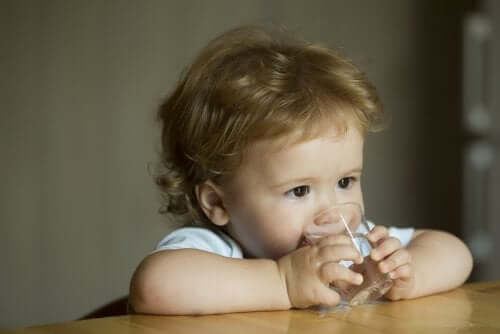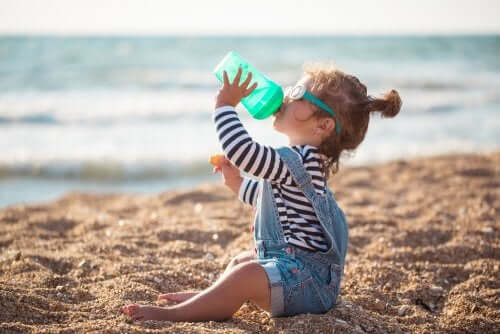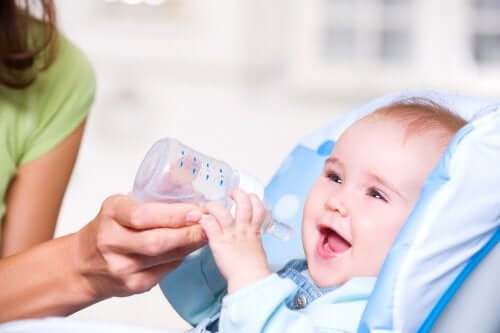When Can Babies Start Drinking Water?
Babies should be offered water when they start receiving complementary food, since breast milk contains enough water for them.

One of the questions that parents ask the most is when they can start offering water to babies, since drinking water is fundamental at every stage in life. So, when should babies start drinking water? We’ll explain more about that in this article. Keep reading!
When should babies be offered water?
During the first six months of their lives, babies only need to be fed breast milk. This milk contains enough water and nutrients to satisfy the baby. If we give water to a baby, we may undernourish him, that is, he may lack nutrients.
Even in hot weather, there is no need to offer water if the baby is being fed breast milk exclusively. Instead, it will be enough to nurse the baby more often so that he’ll receive all the water he needs.
If you aren’t nursing your baby, baby formulas imitate breastmilk compositions. Even though they aren’t exactly the same, there is no need to offer the baby water until he’s started receiving complimentary food.

Complementary feeding begins more or less when the baby is six months old. If the baby continues to be breastfed on demand, he may not want to drink water. However, it’s good to start offering him water so that he gets used to it.
On the contrary, when non-breastfed children begin to receive complimentary food, they drink less milk. So, these children do need to drink more water.
How much water do they need?
When compared to children and adults, breastfed babies have a larger percentage of body water per body weight. Water represents 79% of the bodyweight of a newborn. By one year of age, that amount drops to about 60%.
During the first months of life, babies take in an average of 0.78 l of milk per day. Since approximately 87% of human milk is water, adequate water intake has been estimated at o.7 l per day.
The average daily water intake from all the foods (milk, mashed food, and water in drinks) during the first year of life is of 110-130 mL/kg/day. So, during the second six months of their lives, babies should drink 0.8 l of water per day.
For older ages, in general, the differences in body water between children, teenagers, and adults is minor. Whereas body water represents 60-74% of bodyweight for 1-year-old children, it comprises 60% in children aged one and two.

How to offer water to babies?
As we have mentioned before, since the sixth month of age and if the baby eats other foods, we can start offering him water once he has received breast milk. If we offer water to him before drinking milk or having mashed food, he may not want to drink it.
Another doubt that arises frequently is wether the water should be given in a glass or a bottle. According to the Spanish Paediatrics Association, breastfed babies need no bottles. So, they can drink from a plastic cup or glass.
It isn’t advisable to offer babies water directly from a bottle as that may cause infections and diarrhea. Besides, the sodium content should be less than 25 mg/dl.
